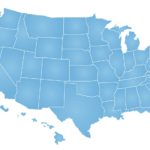[su_box title=”Keep in mind…” style=”default”]
- Obamacare offers an open enrollment period for signup
- After open enrollment, one can buy qualified coverage but without federal subsidies
- After open enrollment, federal and state exchanges do not offer policies
- Special enrollment periods are exceptions to closed enrollment
- Medicaid and CHIP have year-round open enrollment
[/su_box]
The official time to signup for health insurance is the Obamacare Open Enrollment Period. The Open Enrollment Period for the calendar year 2017 began in November 2016 and ended in January 2017. After the close of the enrollment period, the national or state Obamacare exchanges will not sell insurance policies. The applicants must obtain an exception through a qualifying life event that supports a special enrollment period.
In some states, and in some markets, it is possible to get qualified health insurance after open enrollment. The sellers cannot offer federal subsidies and costs assistance as these can only come from a federal or state Obamacare insurance exchange.
Enter your zip code above and compare free health insurance quotes today!
Enrollment for New Calendar Year
Those that refused or failed to enroll for 2017 face the possible tax penalty for no insurance. The next opportunity to enroll is the following year’s open enrollment period. For 2018 calendar year, the planned open enrollment schedule is November 1, 2017, through January 31, 2018.
The Policy Behind Time Limits
Being too late to sign up for healthcare seems to be at odds with the goal of coverage for as many people as possible. The Affordable Care Act balanced the needs of the public with fairness to the private companies that provide insurance coverage.
The law gives all firms an equal chance at the market for medical services by setting definite times for coverage. The policies behind closed enrollment include the below-described factors.
– People should not wait until they are sick to get insured.
The standard open enrollment period adds urgency to the need to get covered before the start of the calendar year. The policy also discourages those that might wait until they get sick to sign-up for insurance. The system and its finances depend on a large insured population including the normal amounts of sick and healthy individuals.
The Obamacare insurance cycle operates on a calendar year schedule beginning in January and ending in the following December.
– Networks depend on time and location.
Managed care depends on the market conditions at the time insurance companies build their provider networks. Prices go in close relationship with demand and other market conditions.
The location is a dramatic factor in determining price and availability of medical resources. Many areas of the US have long histories of low or poor levels of medical services.
The Individual Mandate
Obamacare was a step towards national health insurance in the US. It was a broad plan that used several parts to cover as many people as possible. It was not universal healthcare because it did not cover those that could not pay.
The individual mandate required every eligible person to have minimum essential coverage. Comparison shopping is the ideal method for selecting Obamacare health insurance plans.
The Employer Mandate
Employer’s with 50 or more employees have a role to play in health insurance. They must offer insurance, and large firms must insure their employees. Employer-sponsored insurance does not have a strict open and closed enrollment.
New employees must have an opportunity to get the insurance offered to other employees. The employer-sponsored insurance is technically open to employees at any time within 90 days of initial employment.
Employer-sponsored Coverage
Some employer plans were grandfathered into the Affordable Care Act and lacked some of the protections in the law. They all must have minimum essential coverage. The below-listed items apply to all employer-sponsored plans.
- Employer-sponsored coverage must be major medical coverage and meet the requirements for qualified health plans.
- Employer-sponsored coverage must be Affordable and require less than 9.6 percent of annual family income.
- Those with offers of affordable employer coverage are not eligible for Marketplace policies.
Universal Acceptance
Obamacare required insurance companies to accept all applicants. The law banned the practice of using medical underwriting and previous conditions to deny applicants or to charge higher prices.
Open Enrollment Period
The Open Enrollment Period is the annual time when every eligible person can buy qualified health insurance. Applicants can qualify if they have the ability to pay. Those that do not have enough annual income may qualify for Medicaid or Medicaid Expansion.
Special Enrollment Periods and Qualifying Life Events
Special Enrollment Periods provide a new opportunity to buy insurance from the Marketplace or a state exchange. Applicants can get an additional 90-day opportunity to buy Marketplace policies with any subsidies for which they qualify.
The Affordable Care Act set dates for insurance companies to develop plans and submit them for review before sale on the Obamacare exchanges. The idea was to give all insurers the same period for assessing risks, costs, and other factors.
The policies go on the market in November, and the open enrollment closes the following January. The Affordable Care Act also recognizes that human lives experience many changes and that some changes require a new opportunity for insurance. These changes concern insurance status such as being single or married; they are the life events.
Special enrollments depend on having a qualifying life event. Life events are changes that require new insurance such as moving to a new location not served by the existing insurance provider.
The below-listed items are occurrences that both federal and state exchanges recognize as qualifying changes for a special enrollment period.
- Marriage or divorce
- Birth of a child
- Adoption of a child
- Loss of coverage from parent’s policy after 26th birthday
- Loss of coverage as dependent
States Have Exclusive Life Events
The federal government used a list of accepted life events and had a process for considering complex cases and new situations. Similarly, the state governments that operate health insurance exchanges have lists of qualifying life events and a process for adding new items. The states may offer more flexibility than the federal rules.
One example is the state of New York. The state recognizes pregnancy as a life event while the federal government does not.
The CHIP
The Children’s Health Insurance Program commonly called CHIP protects children and adolescents with demonstrated financial need. The program provides qualified health coverage, vision, and dental care. CHIP has year-round enrollment and covers young people under the age of 18.
Medicaid Coverage
Applicants that cannot pay Marketplace prices for insurance may qualify for low or no-cost coverage under state Medicaid programs. Medicaid coverage is qualified health insurance, and it accepts applicants on a year-round basis. The program accepts applicants with demonstrated need.
Medicaid Expansion
Obamacare does not cover everyone; it does not accept applicants that do not have the ability to pay for private insurance. Millions of applicants that could not afford to pay policy premiums had too much income to get Medicaid. Millions of US families were caught between the upper limit for Medicaid and the lower limit for Obamacare Marketplace coverage.
Medicaid Expansion offered an effective solution. The federal government offered funds to cover additional enrollment in Medicaid by raising the qualification limits well above the poverty line.
Exemptions from the Mandate
The individual mandate provides exemptions for those that experience hardship and have limited incomes. The federal government excuses a small number of months without coverage during the annual insurance cycle. Those that miss two or three months will not face the penalty.
Obamacare exempts residents that do not meet the minimum annual income level for filing a tax return. The rules do not require insurance for persons with exempt income such as Social Security Supplemental Income for severely disabled individuals.
Signing Up for Healthcare
Obamacare policies require an ability to pay. Qualified buyers can purchase coverage during the open enrollment period. Those that do not qualify for Marketplace coverage can get healthcare through Medicaid. Medicaid has upper-income limits, and applicants qualify if their incomes do not exceed the Medicaid limits.
Comparison shopping is an ideal method for selecting the best values in Obamacare health insurance policies. Get free quotes here with your zip code today!
[su_spoiler title=”References:” icon=”caret-square” style=”fancy” open=”yes”]
- https://obamacarefacts.com/obamacare-open-enrollment-2018/
- https://obamacarefacts.com/obamacare-open-enrollment/
- https://obamacarefacts.com/health-insurance-networks/
- https://www.healthcare.gov/choose-a-plan/plan-types/
- https://obamacarefacts.com/obamacare-individual-mandate/
- https://www.healthcare.gov/have-job-based-coverage/
- https://www.healthcare.gov/fees/plans-that-count-as-coverage/
- https://www.healthcare.gov/coverage/pre-existing-conditions/
- https://obamacarefacts.com/guaranteed-issue/
- https://obamacarefacts.com/special-enrollment-period/
- https://www.healthcare.gov/glossary/qualifying-life-event/
- https://obamacarefacts.com/questions/enrollment-extension-due-to-life-events/
- https://www.governor.ny.gov/news/governor-cuomo-signs-legislation-make-new-york-first-state-nation-allow-pregnant-women-enroll
- https://www.healthcare.gov/medicaid-chip/childrens-health-insurance-program/
- https://www.healthcare.gov/medicaid-chip/getting-medicaid-chip/
- https://www.healthcare.gov/medicaid-chip/medicaid-expansion-and-you/
- https://www.healthcare.gov/health-coverage-exemptions/exemptions-from-the-fee/
[/su_spoiler]











